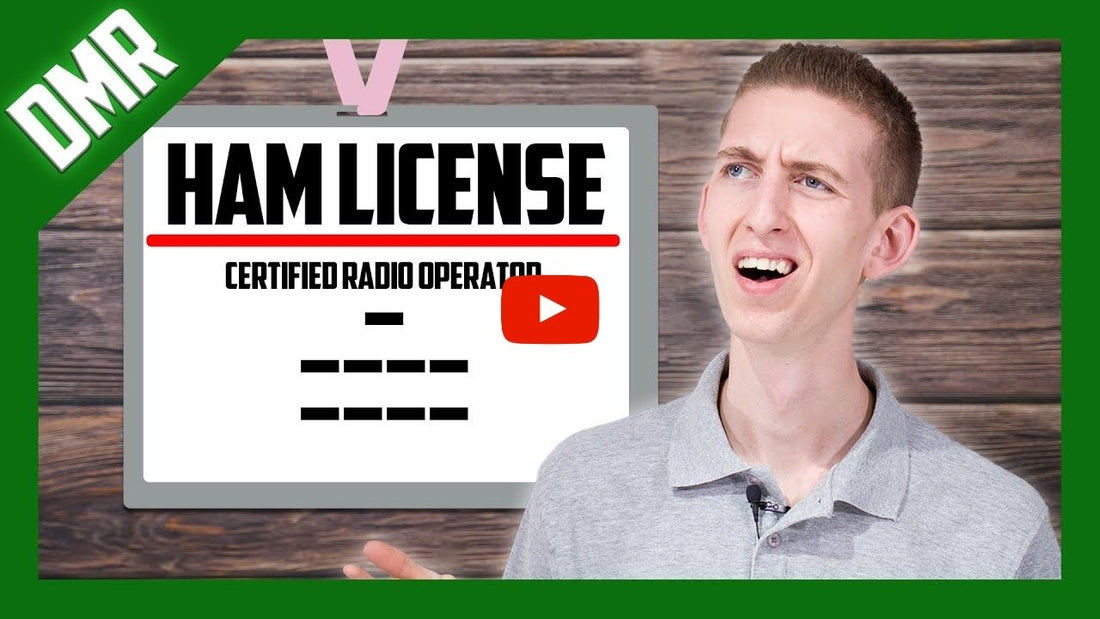
How to Get an Amateur Radio License
Personal Info and FRN Number:
Before you even start trying to study for your license, you need to have two critical information components. Firstly you need to have a valid mailing address. Secondly, you need an FRN number. An FRN, or FCC registration number, is a 10-digit number assigned to you when registering with the FCC. The FCC requires VECs to submit your FRN with your license application form. By already having your FRN number, you’ll be making the process of getting your license much more straightforward. To get your FRN number, click here →
Amateur Radio License Types:
Now that you have your FRN number, you need to decide on the license you want to get. There are three different types of license options in Amateur Radio. These licenses are Technician, General, and Amateur Extra Class. These licenses require knowing an array of information regarding basic regulations, operating practices, and electronics theory. Each exam has differing levels of difficulty concerning this information.
The technician license is the most basic entry-level license, and for those of you who are brand new to the hobby, this is what we recommend you take. With this license, you’ll be able to transmit on all VHF/UHF amateur bands above 50 MHz. You’ll also get varying limited access to 80, 40, 15, and 10 meter bands. Although this level has limited frequencies, you’ll have many different frequency options to make contacts with, especially if you’re using digital radio. To access all the UHF/VHF amateur bands, you’ll need to upgrade to General class.
The General Class is the 2nd highest tier of license class in the amateur radio hobby. With this license, you’ll have the freedom to use all amateur UHF/VHF bands. You’ll also have access to many HF bands, which is why many Hams choose to upgrade to it. HF allows you to communicate with Hams over great distances and even across the world. However, to get full access to all amateur radio bands, there’s one final license you have to earn.
The last license tier or level is the Amateur Extra Class. The reason you’d want to upgrade to this class is not because of prestige; that’s not what amateur radio is about, but because this class will enable you to use all the bands within the amateur radio hobby. If you’re operating within HF bands with a General Class license, you’ll notice the bands can be quite crowded. With your new access to all the amateur bands, you’ll have plenty of more space to make a contact. So what’s the best way to prepare for these tests?
How to Study for Your Radio License Exam:
Once you’ve decided upon what license classification you want to earn, you need to prepare to study. Like we said earlier, each test will cover different information, and each test has a separate question pool. Technician and General exams will have 35 question exams, and you can expect a 50 question exam for Amateur Extra. At BridgeCom, we offer a resource section with several options for you to choose from so you can pass the test you're looking to take. There you can find flashcards, practice exams, and even the entire question pool for your specific exam. This way, you can easily prepare for the questions to come ahead.
BridgeCom Testing Resources →
Now to pass your test, you're going to need to get at least a 74% on your exam. Technician and General Class licenses require you earn a 26/35 and the Amateur Extra requires a 37/50. You will also have to pass each test to take the next one in the series. So if you’re looking to become an Amateur Extra Class in one whack, be prepared to take three exams. Once you’ve put in the hours studying, it’s time to take the exam.
Amateur Radio Testing Options:
To take your test, you’ll need to get in touch with your local VEC or Volunteer Exam Coordinator. These are the officials who are in charge of running your exam. There are online exams available, but it’ll be much easier to do it in person. To find a local exam in your area, click here. On test day, you’ll need to bring a few things with you. For one, you’ll need a pencil, calculator, and we recommend some scratch paper. More importantly, you’ll need to bring a photo ID, cash to pay your exam fee, and a copy of your amateur radio license if you’re already a ham.
If you’re taking the exam in person and you pass, the VEC will hand you a proof of your successful completion. After that, you just need to wait to get your paperwork processed. Once it’s cleared, you’ll be on your way to making your first contact as an Amateur Radio Operator.







1 comment
Cody has RAS, Redundant Acronym Syndrome. A mental affliction that causes people to add the last word of an acronym or initialization when they speak. “ATM-Machine, PIN-Number”, etc. It is really a pain in the ears to listen those people talk. You can try to make them aware of their mental problem by countering their speech impediment with, “Oh the Automated Teller Machine Machine?” or “That’s a Federal Registration Number Number?”